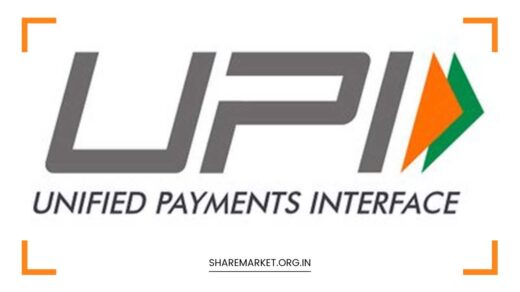Beginner’s Guide to Demat Account

Demat Account
Beginner’s Guide to Demat Accounts
Understanding Demat Accounts
A Demat account, short for Dematerialized account, functions as a digital vault for managing your stock investments. Rather than handling physical share certificates, you hold your shares in electronic form within this account, which simplifies the management of your investments.
This digital transition eliminates the risks associated with physical certificates, such as loss, theft, or damage. In India, having a Demat account is a mandatory requirement for trading in the stock market.
It facilitates smoother transactions and offers enhanced security and convenience for investors looking to participate in the dynamic financial markets.
Why is a Demat Account Important?
A Demat account plays a crucial role in modern investing by offering several key benefits that enhance both security and efficiency:
- Security: One of the primary advantages of a Demat account is the protection it offers against risks associated with physical share certificates. Unlike traditional physical certificates, which are susceptible to loss, theft, or damage, electronic shares in a Demat account are securely stored. This digital format ensures that your investments are safe and reduces the chances of errors or fraudulent activities.
- Convenience: A Demat account simplifies the processes of buying, selling, and transferring shares. Transactions are conducted electronically, eliminating the need for physical paperwork and reducing the time and effort involved. This convenience extends to all aspects of managing your investments, from executing trades to tracking portfolio performance.
- Efficiency: With a Demat account, accessing your investment details and statements becomes effortless. You can view your holdings, monitor transaction history, and generate reports online at any time. This real-time access helps you stay informed about your investments and make timely decisions based on current market conditions.
- Dividend and Benefit Management: The management of dividends, interest, and other corporate benefits is streamlined with a Demat account. Dividends and interest payments are automatically credited to your account without the need for manual intervention. Additionally, corporate actions such as bonus shares or rights issues are handled electronically, ensuring that you receive these benefits promptly.
- Liquidity: Selling shares and accessing the proceeds is faster and more straightforward with a Demat account. The electronic format facilitates quicker settlement of transactions, allowing you to convert your investments into cash with minimal delay. This enhanced liquidity is especially beneficial for investors who need to access funds rapidly.
In summary, a Demat account is essential for modern investors as it offers superior security, convenience, efficiency, and liquidity, making it an indispensable tool in the management of electronic securities and investments.
The Benefits of Investing in Shares
Investing in shares remains a popular choice for many individuals due to several compelling benefits:
- Higher Returns: Historically, the stock market has demonstrated a capacity to deliver higher returns compared to other investment avenues such as savings accounts, fixed deposits, or government bonds. While investing in shares involves a certain level of risk, the potential for significant capital appreciation and higher long-term gains often outweighs these risks. Over time, equities have proven to be one of the most rewarding investment options for wealth accumulation.
- Inflation Hedge: Shares can act as a safeguard against the diminishing effects of inflation. Unlike cash savings or fixed income investments, which can lose value over time due to inflation, equities have the potential to grow in value and yield returns that outpace inflation. Companies that generate higher profits and expand their operations often experience increased share prices, which can help preserve and even enhance your purchasing power.
- Tax Benefits: Investing in shares offers attractive tax benefits. For example, dividends received from shares are generally tax-free up to a certain limit in many jurisdictions. This is in contrast to interest earned from fixed deposits, which is often subject to income tax. Additionally, capital gains from the sale of shares held for the long term might be taxed at preferential rates, further enhancing the tax efficiency of investing in equities.
- Liquidity: Shares are highly liquid assets, meaning they can be easily bought or sold on stock exchanges. This liquidity ensures that investors can quickly access their money when needed. Unlike some other investments that might require a lock-in period or involve complex procedures for liquidation, shares provide a straightforward mechanism to convert investments into cash, making them a flexible choice for managing personal finances.
In essence, investing in shares offers the potential for higher returns, serves as a hedge against inflation, provides tax advantages, and ensures liquidity.
These benefits make equity investment an attractive option for individuals looking to grow their wealth and manage their financial future effectively.
Opening a Demat Account
Opening a Demat account has become increasingly straightforward thanks to advancements in financial technology. Here’s a detailed step-by-step guide to help you through the process:
- Choose a Broker: The first step in opening a Demat account is selecting a reliable broker or Depository Participant (DP). It’s important to choose a broker that aligns with your investment goals and preferences. Evaluate various brokers based on factors such as brokerage charges, the quality of their trading platform, customer support, and the range of research tools they offer. Comparing these aspects will help you find a broker that provides the best value for your needs and preferences.
- Fill the Account Opening Form: After choosing a broker, you will need to complete the Demat account opening form. This form requires you to provide personal details such as your name, address, contact information, and bank account details. It’s crucial to fill out the form accurately and honestly to avoid any delays or issues with account activation. Some brokers offer online forms, which can be filled out and submitted digitally, making the process more convenient.
- Submit Documents: Along with the completed form, you need to submit various documents for verification. These typically include:
- PAN Card: Essential for all financial transactions and serves as proof of identity.
- Aadhaar Card: Provides additional identity verification and often serves as proof of address.
- Proof of Address: Can include documents like a utility bill, bank statement, or voter ID.
- Passport-sized Photographs: Recent photos are required for account records.
Ensure that all documents are current, clearly legible, and match the information provided in the application form.
- Account Activation: Once the broker receives your application and documents, they will verify the information. This verification process usually involves checking the authenticity of the documents and cross-referencing them with regulatory requirements. After successful verification, your Demat account will be activated. You will receive your account details, including a unique Demat account number, allowing you to start trading and managing your investments electronically.
By following these steps, you can efficiently open a Demat account and begin your journey in the stock market with a well-managed and secure investment platform.
Understanding Your Demat Account
Your Demat account functions like a digital passbook for your investments. It maintains a detailed electronic record of all your share transactions, including purchases, sales, and transfers.
Each account is assigned a unique Demat account number, which is used for tracking and managing all your trading activities seamlessly within the electronic system.
Important Features of a Demat Account
A Demat account offers several essential features that streamline the management and security of your investments. Understanding these features can help you make the most of your Demat account:
- Dematerialization: One of the core functions of a Demat account is dematerialization, which involves converting physical share certificates into electronic form. This process eliminates the need for handling physical documents, reducing the risks associated with loss, theft, or damage. By transforming shares into electronic format, the entire process of managing investments becomes more secure and efficient.
- Rematerialization: While dematerialization converts physical certificates to electronic shares, rematerialization is the reverse process. If needed, you can reconvert your electronic shares back into physical certificates. This feature provides flexibility for investors who prefer to hold physical documents for their records or for other personal reasons.
- Online Access: Demat accounts typically come with user-friendly online platforms that allow you to manage your investments from anywhere at any time. Through these online interfaces, you can view your portfolio, track transaction history, monitor market conditions, and execute trades. This accessibility enhances convenience and enables you to stay on top of your investments with ease.
- Holding Multiple Securities: A Demat account can store a diverse range of securities, including stocks, bonds, mutual funds, and exchange-traded funds (ETFs). This feature allows you to consolidate various types of investments in a single account, simplifying portfolio management and providing a comprehensive view of your holdings.
- Transfer Facility: Transferring shares between Demat accounts is made easy with this feature. Whether you want to move shares to a different account for personal reasons or as part of a financial transaction, the process is streamlined and efficient. This flexibility is particularly useful for managing multiple accounts or transferring shares to family members or beneficiaries.
These features collectively enhance the functionality and convenience of a Demat account, making it a crucial tool for modern investors seeking a secure and efficient way to manage their securities.
Additional Considerations
When opening and managing a Demat account, there are several important factors to keep in mind:
- Demat Account Charges: Be aware of the various charges associated with maintaining a Demat account. These typically include annual maintenance charges (AMC), which cover the cost of maintaining your account, as well as transaction charges for buying and selling securities. Additional fees may apply for services such as dematerialization, rematerialization, or pledge of shares. Fees can vary between different Depository Participants (DPs), so it’s crucial to thoroughly review the fee structure and understand how these costs will impact your overall investment returns.
- Demat Account Safety: Security is paramount when it comes to managing your investments. Choose a reputable broker or DP with a strong track record and robust security measures in place. Ensure that your account has advanced security features such as two-factor authentication (2FA) and encryption to protect against unauthorized access and cyber threats. Regularly monitoring your account activity and staying informed about any security updates from your DP can help safeguard your investments.
- Investment Education: Before diving into the stock market, invest time in educating yourself about various aspects of investing. This includes understanding market dynamics, different investment strategies, and risk management techniques. Familiarize yourself with concepts such as diversification, asset allocation, and fundamental versus technical analysis. Proper knowledge and education will empower you to make informed decisions, manage risks effectively, and enhance your overall investment strategy.
By considering these additional factors, you can optimize the management of your Demat account and make more informed investment choices, ultimately contributing to a more secure and successful investment experience.
Remember: While investing in shares can be rewarding, it also involves risks. Conduct thorough research and consider consulting a financial advisor before making investment decisions.

















